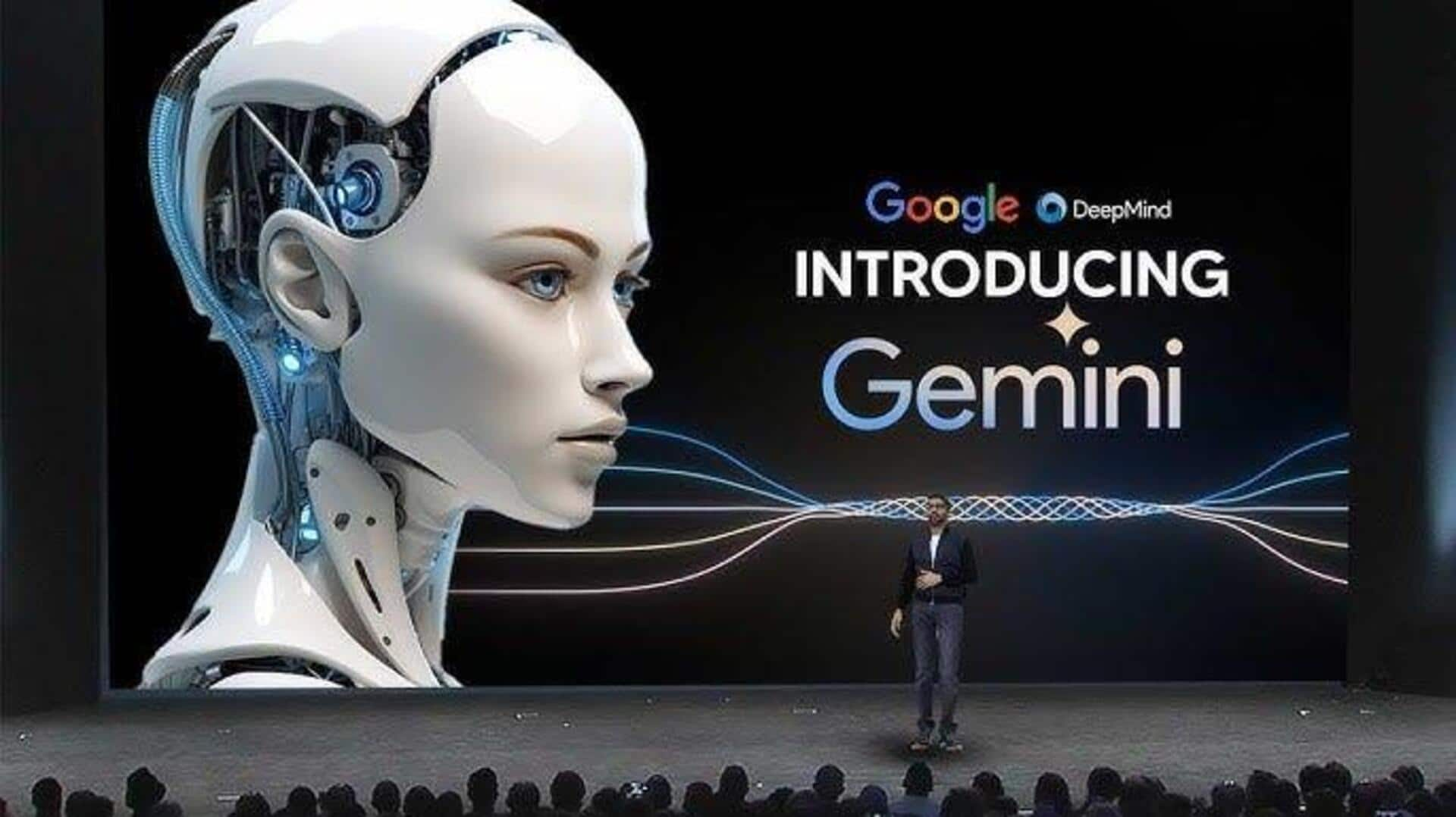
Google rebrands AI chatbot Bard as Gemini, launches new app
What's the story
Google has renamed its AI chatbot Bard as Gemini, giving a new identity to its ChatGPT rival.
The tech giant has also launched a dedicated Gemini app for Android users. It is also incorporating all Duet AI features into the Gemini brand within Google Workspace.
Sissie Hsiao, who oversees Gemini at Google, said, "I think it's a super important first step toward building a true AI assistant, one that is conversational, multimodal, and more helpful than ever before."
Gemini subscription plan
Gemini Ultra 1.0 released, available through subscription plan
Google has also released Gemini Ultra 1.0, the most advanced version of its large language model, to the public.
To access this AI model, users need a Gemini Advanced subscription, which is included in the new $20/month Google One AI Premium plan.
Per the company, Gemini Ultra "sets the state of the art across a wide range of benchmarks across text, image, audio, and video," and excels at complex tasks like coding and logical reasoning.
Gemini for Android & iOS
Android users get dedicated Gemini app
Android users can download the new Gemini app from the Google Play Store. They can also set Gemini as their default assistant through the new app to replace Google Assistant.
Coming to iOS users, there is no dedicated app for them. However, users can access all AI features via the Google app.
Additionally, Google plans to assimilate Gemini models into products like Workspace and Google Cloud, allowing AI Premium subscribers to use Gemini in Gmail, Docs, Slides, Sheets, and more.
Gemini's market rivals
Google's Gemini to compete with OpenAI and other AI rivals
The rebranding and enhancement of Gemini's capabilities demonstrate Google's dedication to competing with powerful AI rivals like OpenAI, Anthropic, and Perplexity.
In tests conducted last year by The Verge, the Gemini AI model-powered Bard was found to be nearly at par with OpenAI's GPT-4 model, but "significantly slower."
Google now faces the challenge of keeping up with the industry while creating an appealing consumer product and persuading developers to build on Gemini instead of GPT-4.